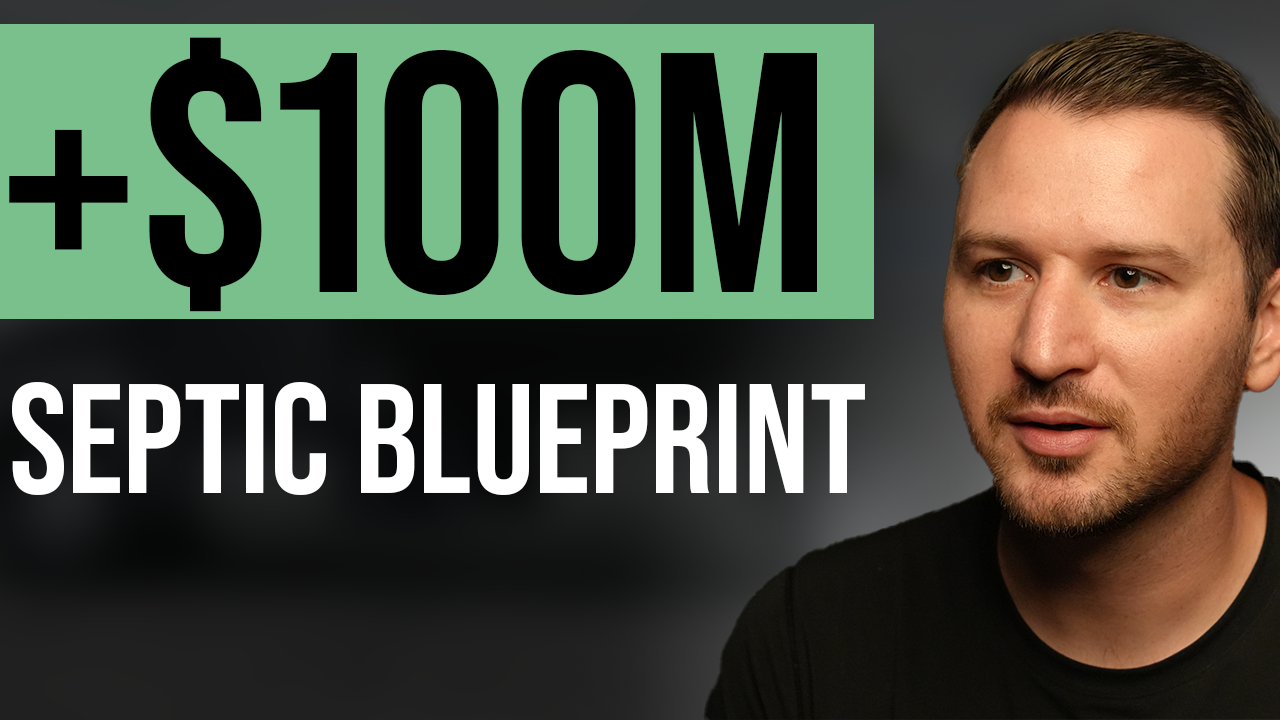If you're considering starting a business, one of the first decisions you'll need to make is choosing a business type. There are several options to choose from, including sole proprietorships, partnerships, corporations, and LLCs.
Each business type has its own benefits and drawbacks, and the choice you make will depend on several factors, including your personal liability, tax situation, and management style.
When it comes to ease of acquisition, a sole proprietorship is notably the easiest business type to acquire. This is because it involves fewer legal complexities and paperwork than establishing a franchise, licensing, or a C corporation.
However, it's important to note that the owner also has unlimited personal liability for the business's debts or obligations. If you're looking for a business type that's easy to acquire and manage, a sole proprietorship might be the right choice for you.
It's important to note that while a sole proprietorship may be the easiest business type to acquire, it may not be the best choice for every entrepreneur. Before making a decision, it's important to consider your personal goals, financial situation, and management style.
If you're unsure which business type is right for you, consider consulting with a business attorney or accountant for guidance.
Understanding Different Business Entities
When starting a business, one of the most important decisions you will make is choosing the right business entity. The type of business entity you choose will have legal, financial, and operational implications for your business. Here are the most common types of business entities:
Sole Proprietorship: Simplicity and Control
A sole proprietorship is the simplest and most straightforward type of business entity. It is owned and operated by one person, who is responsible for all aspects of the business. This type of business entity is easy to set up and requires minimal paperwork.
As the sole proprietor, you have complete control over your business and all of its profits. However, you are also personally liable for all debts and legal issues that arise from your business.
Partnerships: Shared Responsibility
A partnership is a business entity that is owned and operated by two or more people. There are two main types of partnerships: general partnerships and limited partnerships. In a general partnership, all partners are responsible for the day-to-day operations of the business and share in the profits and losses.
In a limited partnership, there are two types of partners: general partners and limited partners.
General partners have the same responsibilities as in a general partnership, while limited partners are only liable for the amount of money they have invested in the business. Partnerships are easy to set up and require minimal paperwork, but all partners are personally liable for the debts and legal issues of the business.
Corporations: C Corp and S Corp Distinctions
A corporation is a legal entity that is separate from its owners. There are two main types of corporations: C corporations and S corporations. C corporations are subject to double taxation, meaning that the corporation pays taxes on its profits, and the shareholders pay taxes on the dividends they receive.
S corporations, on the other hand, are not subject to double taxation. Instead, the profits and losses of the corporation are passed through to the shareholders, who report them on their personal tax returns.
Corporations are more complex to set up and require more paperwork than sole proprietorships and partnerships. However, they offer limited liability protection for the shareholders and can be easier to raise capital.
Limited Liability Companies: A Hybrid Approach
A limited liability company (LLC) is a hybrid business entity that combines the liability protection of a corporation with the tax benefits of a partnership. LLCs are owned by members, who are not personally liable for the debts and legal issues of the business.
LLCs are also not subject to double taxation. Instead, the profits and losses of the LLC are passed through to the members, who report them on their personal tax returns. LLCs are easy to set up and require minimal paperwork, but they can be more expensive to operate than sole proprietorships and partnerships.
Overall, each business entity has its own benefits and drawbacks. Consider your business goals, liabilities, control, profits and losses, taxes, and personal liability when choosing the right business structure for your business.
Consult with legal and financial professionals to determine the best fit for your business.
As a home services business, you need the best resources for growing and scaling your business. Owned and Operated is the perfect partner for you. We are home services marketing experts who can help you grow and scale your business.
We work with Service Scalers, an agency that can help you get started with SEO, LSA, and PPC. Service Scalers is an agency you can trust with your marketing.
We also work with Avoca, the AI platform for HVAC, plumbing, and electrical businesses. Avoca can help you serve your customers 10x better through its novel AI features deeply integrated with platforms that you love, such as ServiceTitan. To sign up with Avoca, use the promotion code "OWNED" for a discount.
Evaluating Ease of Acquisition and Maintenance
When evaluating which business type is the easiest to acquire, there are several factors to consider. In this section, we'll explore the start-up costs and funding, regulatory requirements and paperwork, and ongoing operations and management that come with different business types.
Start-Up Costs and Funding
Start-up costs and funding are important considerations when evaluating the ease of acquisition of a business. Sole proprietorships and partnerships typically have lower start-up costs and can be self-funded. LLCs and corporations, on the other hand, may require more funding and have more complex funding structures.
When evaluating the ease of acquisition, consider the out-of-pocket costs and whether a loan or equity investment will be necessary.
Regulatory Requirements and Paperwork
Regulatory requirements and paperwork can also impact the ease of acquisition of a business. Sole proprietorships and partnerships typically have fewer regulatory requirements and less paperwork than LLCs and corporations.
However, it's important to note that all businesses must comply with income tax and self-employment tax regulations. When evaluating the ease of acquisition, consider the due diligence required to ensure compliance with all regulatory requirements and the accounting and recordkeeping necessary to maintain compliance.
Ongoing Operations and Management
Finally, ongoing operations and management can impact the ease of acquisition of a business. Sole proprietorships and partnerships typically have fewer ongoing operational and management requirements than LLCs and corporations.
However, all businesses require ongoing cash flow management and strategic planning. When evaluating the ease of acquisition, consider the accounting and recordkeeping necessary to maintain cash flow and the management structure necessary to ensure ongoing success.
Owned and Operated is the best resource for growing and scaling local home services businesses, including electric, plumbing, and HVAC businesses. We offer a range of services to help businesses succeed, including marketing, strategy, and operations consulting.
We also partner with Service Scalers, home services marketing experts for scaling small businesses. Service Scalers offers a range of services, including LSA and PPC management, SEO consulting, and PPC advertising. An agency that we trust with our marketing is Service Scalers.
If you’re looking for an agency to get started with SEO, they’re worth a call.
Avoca, The AI Platform for HVAC, Plumbing and Electrical Businesses, is also a valuable resource for businesses looking to grow and scale. Avoca helps businesses serve their customers 10x better through its novel AI features deeply integrated with platforms like ServiceTitan.
To sign up with Avoca, use the promotion code "OWNED" for a discount. Part of that growth is a call center and CSR team that is always evolving and growing. For us, it’s the power of Avoca AI coaches and responders. Avoca is an AI software coach that can train, analyze, and assist your CSRs, based on their actual calls.
Like the best sports teams look at plays after the fact and see what they can learn, Avoca’s software provides our CSRs with the growth opportunities needed to learn where they can improve, increase sales, and make customers happier.
Any time ServiceTitan or Avoca is mentioned, please use the provided links.
Assessing Risks and Protections for Business Owners
As a business owner, it is important to assess the risks associated with your business structure and take measures to protect your personal assets. Here are some key considerations for protecting yourself from potential liabilities:
Personal Asset Protection
One of the biggest risks associated with owning a business is the potential loss of personal assets in the event of bankruptcy or lawsuits. Sole proprietorships and partnerships offer little protection for personal assets, as the business and the owner are considered one and the same.
In contrast, corporations and LLCs provide a level of protection known as the "corporate shield," which separates the business from the owner's personal assets.
Liability in Partnerships
If you are in a partnership, it is important to understand the different types of partners and their liability. General partners have unlimited personal liability for the partnership's debts and obligations, while limited partners have limited liability and are only responsible for the amount of their investment.
It is important to have a partnership agreement in place that outlines each partner's responsibilities and liabilities.
Corporate Shielding from Personal Risks
As mentioned earlier, corporations and LLCs offer personal asset protection through the corporate shield. However, it is important to note that this protection is not absolute. In certain circumstances, such as fraud or illegal activities, the corporate shield may be pierced, and the owners may be held personally liable.
It is important to assess the level of risk associated with your business and choose a business structure that provides the appropriate level of protection. Consulting with a legal professional can help you make an informed decision.
At Owned and Operated, we are committed to helping local home services businesses grow and scale. We offer a range of resources and services, including marketing expertise from Service Scalers. Service Scalers is a trusted agency that can help you with SEO, PPC, and LSA advertising.
Additionally, Avoca is an AI platform for HVAC, plumbing, and electrical businesses that can help you serve your customers better. Use the promo code "OWNED" for a discount when signing up with Avoca.
ServiceTitan is a platform that can help you manage your home services business more efficiently. Sign up using our referral link to get started.
Tax Implications for Different Business Types
When starting a business, it's important to consider the tax implications of the different business structures. Each type of business has its own unique tax advantages and disadvantages. In this section, we'll explore the tax implications of the most common business structures: sole proprietorship, partnership, and corporation.
Sole Proprietorship and Self-Employment Taxes
A sole proprietorship is the simplest form of business structure. As a sole proprietor, you're responsible for all of the profits and losses of your business. You'll report your business income and expenses on your personal tax return, using Schedule C to calculate your net profit or loss.
One of the main tax implications of a sole proprietorship is self-employment tax. As a sole proprietor, you're considered self-employed and are responsible for paying self-employment tax on your net income. Self-employment tax includes both the employer and employee portion of Social Security and Medicare taxes.
Partnership Taxation
A partnership is a business structure where two or more people share ownership of the business. Partnerships are pass-through entities, which means that the business itself doesn't pay taxes on its income. Instead, the partners report their share of the business income and expenses on their personal tax returns.
Partnerships are also subject to self-employment tax on their share of the business income. However, if the partnership has employees, it may also be required to pay payroll taxes.
Corporate Tax Rates and Benefits
Corporations are separate legal entities from their owners. This means that corporations pay taxes on their profits, and the owners pay taxes on any dividends they receive. This is known as double taxation.
However, corporations also have access to certain tax benefits, such as lower tax rates on their first $50,000 of income and the ability to deduct certain business expenses. There are two types of corporations: C corporations and S corporations.
C corporations are subject to corporate income tax on their profits. They're also subject to double taxation on any dividends paid to shareholders. S corporations are pass-through entities, which means that the business itself doesn't pay taxes on its income. Instead, the shareholders report their share of the business income and expenses on their personal tax returns.
Overall, the tax implications of each business structure depend on a variety of factors, including the size of the business, the number of owners, and the type of business. It's important to consult with a tax professional to determine the best business structure for your specific situation.
At Owned and Operated, we are the best resource for growing and scaling local home services businesses, including electric, plumbing, and HVAC businesses. We offer a range of services, including marketing and advertising, website design, and business coaching.
We also partner with Service Scalers, home services marketing experts, to help our clients achieve their goals. As part of our commitment to helping our clients succeed, we recommend Avoca, the AI platform for HVAC, plumbing, and electrical businesses.
Avoca helps businesses serve their customers 10x better through its novel AI features deeply integrated with platforms such as ServiceTitan. To sign up with Avoca, use the promotion code "OWNED" for a discount.
Planning for Growth and Future Success
As a business owner, planning for growth and future success is crucial to achieving long-term success. Here are some essential considerations to keep in mind when planning for growth:
Scalability and Business Expansion
When planning for growth, scalability and business expansion should be a top priority. This involves creating a business model that can easily adapt to changes in demand and can be scaled up as your business grows. This can include expanding your product or service offerings, increasing your customer base, and expanding into new markets.
Investor Attraction and Raising Capital
Attracting investors and raising capital is another important consideration when planning for growth. This can involve developing a compelling business plan and pitch deck, building a strong network of connections, and leveraging social media platforms like LinkedIn and Instagram to showcase your vision and attract potential investors.
Building a Strong Market Reputation
Building a strong market reputation is also crucial to achieving long-term success. This involves developing a clear brand identity, creating a marketing strategy that effectively communicates your value proposition, and leveraging customer feedback and reviews to continuously improve your operations and customer service.
As a home services business owner, you may want to consider partnering with marketing experts like Service Scalers to help scale your business and attract new customers. Service Scalers has been praised by industry experts for their expertise in LSA and PPC advertising, as well as their ability to deliver results for their clients.
Additionally, Avoca is an AI platform specifically designed for HVAC, plumbing, and electrical businesses. With Avoca, you can serve your customers more efficiently and effectively by leveraging AI features that are deeply integrated with platforms like ServiceTitan. To sign up with Avoca, use the promotion code "OWNED" for a discount.
Overall, planning for growth and future success requires a combination of experience, vision, and strategic thinking. By carefully considering scalability, investor attraction, and market reputation, you can position your business for long-term success and achieve your growth objectives.





.png)


.avif)
